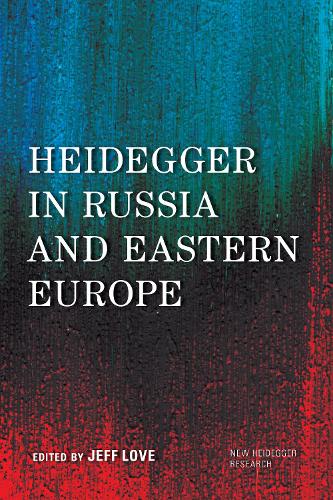
Heidegger in Russia and Eastern Europe
(Paperback)
Available Formats
Publishing Details
Heidegger in Russia and Eastern Europe
By (Author) Jeff Love
Bloomsbury Publishing PLC
Rowman & Littlefield International
25th July 2017
United Kingdom
Classifications
Professional and Scholarly
Non Fiction
Social and political philosophy
193
Physical Properties
Paperback
392
Width 143mm, Height 226mm, Spine 33mm
621g
Description
Heideggers influence in the twentieth century probably outstrips that of any other philosopher, at least in the so-called Continental tradition. The 'revolution' Heidegger brought about with his compelling readings of the broader philosophical tradition transformed German philosophy and spread quickly to most of Europe, the United States and Japan. This volume examines Heideggers influence in a region where his reception has had a remarkable and largely hidden history: Eastern Europe and Russia. The book begins by addressing two important literary influences on Heidegger: Dostoevsky and Tolstoy. It goes on to examine Heideggers philosophical influence, and features three crucial figures in the reception of Heideggers thought in Eastern Europe and Russia: Vladimir Bibikhin, Krzysztof Michalski, and Jan Patoka. Finally the volume deals with an often vexed issue in current treatments of Heidegger: the importance of Heideggers philosophy for politics. The book includes essays by an international team of contributors, including leading representatives of Heideggerian thought in Russia today. Heideggers thought plays a key role in debates over Russian identity and the geopolitical role Russia has to play in the world. The volume surveys the complicated landscape of post-Soviet philosophy, and how the rise of widely differing appropriations of Heidegger exploit familiar fault lines in the Russian reception of Western thinkers that date back to the first stirrings of a distinctively Russian philosophical tradition.
Reviews
Martin Heidegger in Russia and Eastern Europe is a most welcome contribution to at least three fields of inquiry. It enriches our understanding of the world-wide reception of Heideggers philosophy, adds a dimension to Russian and Eastern European intellectual and cultural history, and provides a vivid case study in misplaced ideas (Roberto Schwarz), concepts and imaginaries crossing cultural, linguistic and historical boundaries and changing emphases and valences in the process. -- Ilya Kliger, Associate Professor of Russian and Slavic Studies, New York University
This path-breaking collection provides in one volume a wide-ranging, innovative assessment of Heideggers interest in Russian literature and of his impact on Eastern European philosophy and politics. The Russian, Czech, and Polish responses to Heidegger are extensive and often profound, and the essays here present them in unfailingly accessible, insightful, and historically grounded fashion. -- William Mills Todd III, Professor of Literature, Harvard University
Author Bio
Jeff Love is Professor of German and Russian at Clemson University. He is the author of Tolstoy: A Guide for the Perplexed (2008) and The Overcoming of History in War and Peace (2004). He has also published an annotated translation of F. W. J. Schellings Philosophical Investigations into the Essence of Human Freedom (2006) with Johannes Schmidt
